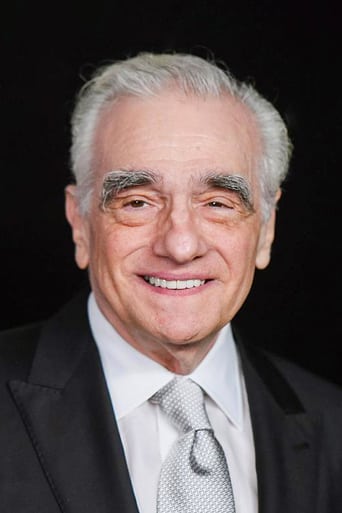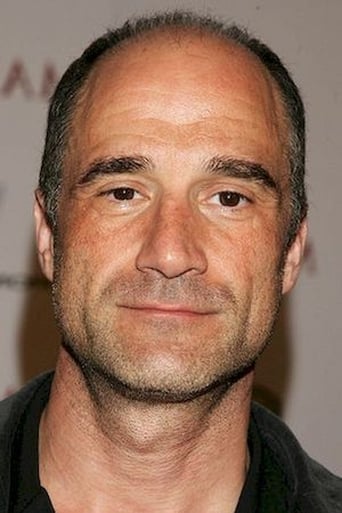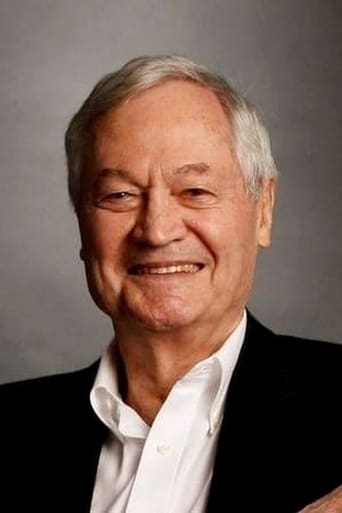AniInterview
Sorry, this movie sucks
Raetsonwe
Redundant and unnecessary.
Onlinewsma
Absolutely Brilliant!
twistinghost
Val Lewton is a deeply respected hero of American cinema, but his works are best appreciated without scholars telling you why Lewton's contributions are so important. To begin with, it's disrespectful to the directors of Lewton's films to have film historians waxing on about every detail and crediting Lewton almost exclusively, as if he was the director. In the event that you never noticed before, Hollywood is collectively its own biggest fan. Watching Turner Classic Movies on a regular basis will expose you to film experts and movie people gushing over past works as if God himself, or perhaps they were interim Dr. Frankensteins acting as proxy creators. Martin Scorsese is almost as well known for his embellishments on the topic as he is for his own pictures."Val Lewton: The Man in the Shadows" is a library of prose praising the visual style, the dialog, the lighting, the mood -- attributes normally credited to the director, as if the actual directors of these films were merely showing up and collecting a check while Lewton commandeered every job on and off the set. The fault is, as noted before, the self-referential adoration from the industry itself of its own offspring. Imagine for a moment having to hear such praise of one's work from carpenters, mechanics, teachers, civil servants, construction crews...it would be appalling to be subjected to poetic essays on the greatness of their jobs which are, truth be known, of much greater significance to society as a whole.The moral of the story: the entertainment industry needs to get over itself, do its job and go home. The single benefit of this production is that the films highlighted can be looked at as more detailed trailers, even though the films represented are quite a bit overstated. Let movies entertain you and forget the idea that experts need to teach you how to enjoy them.
Robert J. Maxwell
Val Lewton was born in Russia and emigrated as a child with his family to America. He worked around the outskirts of Hollywood for a while before becoming a producer of what were called horror films at RKO Studios. This was in the early 1940s. He died shortly after the end of the war, of a heart condition.During his active period, this melancholy and retiring man -- who rewrote all his scripts without taking any screen credit -- led a unit of friends and compatible colleagues that produced some of the most haunting, small-budget, eerie movies to come out of Hollywood, about nine all together.This documentary by Martin Scorsese is an appreciation of Lewton's work, and nicely done it is. Lewton deserves all the attention and thought that went into the documentary. There are abundant excerpts from his films and interesting commentaries from a handful of talking heads, including that of the little girl from "The Curse of the Cat People", now fully grown."The Curse of the Cat People" is emblematic of the titles and material being thrown at Lewton while he was at RKO. The studio had just produced "Citizen Kane," a ruinously expensive flop at the time, and its new motto was "Showmanship, Not Genius." An additional impetus to the formation of Lewton's unit came from the success of Universal Studios' monster movies: "Frankenstein," "Dracula," "The Wolfman," "The Curse of Frankenstein," "The Briss of Dracula," and what not. The intention was for Lewton to make competitive monster movies at less cost. He did considerably more than that. He was stuck with the lurid titles and the sometimes irrational plots but he managed to polish the stories and see that they were filmed with impeccable taste.The narration is well written and insightful. Here's an instance of what I mean. I'd never realized it before but the most hair-raising moments in Lewton's movies are handled very briefly. They last only an instant or two -- a bus hissing to a halt, a trickle of blood under a door, the hoof beats of a horse turning into a flapping old automobile tire -- whereas today one would find these effects not only made more explicit but lingered over until the audience was on the edge of exhaustion or maybe beyond that.For those who are interested, there is a boxed set of nine of Lewton's best films now available on DVD, and each film is accompanied by a knowledgeable commentary.
ccthemovieman-1
Val Lewton was another one of these guys (Sol Wurtzel was another) who was terrific at making "A" pictures on a "B" budget. To this day, Lewton's horror films are fairly well-known and receive wonderful notices by critics and film historians.This look at the somewhat-but-not altogether famous filmmaker is a 77-minute very interesting excursion that was made, I believe, for the Turner Classic Movie (TCM) network, and was aired several times recently (mid January of 2008). I assume it will run numerous times on the network, in future months. Director Martin Scorcese narrates this tale about Lewton, his history and his films.Some of the comments that particularly caught my ear, made by either Scorcese, Val Lewton's son, or by someone else in here, included:"His movies moved and spoke to audiences in a different way....Lewton's films were more terror than horror....He was always at odds with his bosses but never satisfied with is own achievements....There is no film footage of him, no voice recordings of him.......He had no inkling he would be remembered by posterity......Many scenes in his films reflected his own phobias and views on life, as an outsider......We are all potentially evil and possible murderers."Some of Lewton's films are examined in detail, beginning with "The Cat People," followed by "I Walked With A Zombie," "The Leopard Man," "Curse Of The Cat People," and to a lesser extant, films that followed those. It was interesting to hear about his struggles with RKO and his unexpected success later with Boris Karloff in several of his movies ("The Body Snatcher" being his best, in many people's opinion.) We also hear from directors Roger Corman, Jacques Tourneur (who worked with Lewton on a number of films) and the famous Robert Wise.This is a long documentary - and it is definitely slanted in favor of Lewton - and might have been more effectively edited down to an hour, but still pretty fascinating. I recognized the voice of actor Elias Koteas, who was reading some of the comments Lewton made over the years, almost in dairy or autobiographical form.Some of the Lewton's film clips shown here will just about give you chills watching them. This man was a master at frightening you with things unseen.
Enrique Sanchez
Strange how sometimes one does not always see what others see. That is the germ of the artist.Scorcese clearly delves deeply into the world of Val Lewton, practically an unknown artist in the golden era of the movies which was sadly unlauded sufficiently during his law.We see what so many of us probably didn't see or were not able to analyze as adeptly as Scorcese in Lewton's work. Certainly, these are not the grade A pictures we all know about, but Scorcese thrusts them into their well-deserved prominence by explaining how really fabulous Lewton's falsely relegated B-pictures they were. Sure they were low budget - but WHAT Lewton did was nothing short of miracles of mood, suspense and mystery, contrast and hue and the deep character development which exists within a movie and not necessarily a protagonist. We are shown, and it is explained just how Lewton worked his magic with shoestring budgets.I've seen some of these movies, but never in this way...and after this, I will always bring with me the wonderful aura of the prodigious talent of Val Lewton.




